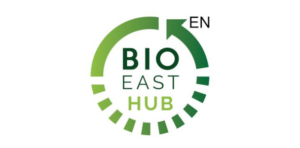Join us for an exclusive online expert gathering on July 1st 2024, 9-12 pm CEST, to explore how bioeconomy education can be best tailored to the unique characteristics of regions.
In this workshop, a variety of educational approaches and practices will be presented covering different target audiences from primary and secondary level, different levels of expertise, and forms of education, such as curricula studies, vocational training, and specialised seminars.
A regional approach to bioeconomy education ensures that educational programs are relevant, sustainable, and beneficial to local communities and industries. Join us in exploring how bioeconomy education can be best tailored to the unique characteristics of each region, considering cultural, economic, geographical, institutional, governmental, community, environmental, and technological factors! In this workshop a variety of educational approaches and practices will be presented covering different target audiences from primary and secondary level, different levels of expertise, and forms of education, such as curricula studies, vocational training, and specialised seminars.
This workshop is part of a BIO2REG series of expert workshops, which will help gather insights into the key prerequisites for successful transitions including funding, social sustainability, climate-neutral bio-based value chains and business models, and research infrastructure and living labs. Findings will serve to develop BIO2REG guides and other resources aimed at helping regions to deploy a systemic transition to a bioeconomy model region.
| 9:00 -9:10 am | Welcome and introduction of BIO2REG |
| 9:10 -9:30 am | Susanna Albertini
Initiator, main contact at European Bioeconomy Network EuBioNet, FVA New Media Research – Italy |
| 9:30-09:50 am | Prof. Dr. Ingar Janzik, Scientific-administrative coordination / education, Bioeconomy Science Center (BioSC), c/o Forschungszentrum Jülich – Germany |
| 09:50-10:10 am | Prof. Dr. Constantinos E. Vorgias, Faculty of Biology Department of Biochemistry– Molecular Biology, National and Kapodistrial University of Athens – Greece |
| 10:10-10:30 am | Dipl.Ing. Bernhard Koch, Scientific Coordinator, Centre of Bioeconomy, BOKU University – Austria |
| 10:30-11:00 am | Presentation of a macro-regional network – the BIOEAST UNInet, George Sakellaris, BIOEAST HUB CZ – Czech Republic |
| 11:00 am-12:00 pm | Co-creation workshop on “The Regional Aspect of Bioeconomy Education” |
The Concept of the Workshop
Bioeconomy education focuses on sustainable practices applicable to a wide range of sectors and emphasising the use of renewable biological resources. Given the multidisciplinary nature of bioeconomy, educational programs should aim to create a new generation of experts capable of managing the challenges and the complexity of the domain. When examining the regional aspects of bioeconomy education, there are several key considerations:
- Cultural context: Regions have unique cultural practices and traditional knowledge related to bioeconomy. Incorporating local traditions and community-based practices into educational programs can enhance their relevance and acceptance.
- Economic Focus: Regions often have varying economic focuses within the bioeconomy. Educational programmes should align with these economic specialties, preparing students for local industry needs.
- Geographical Factors: The geographical landscape can shape bioeconomy education. For example, coastal regions might emphasize marine resources, while inland areas focus on agriculture or forestry. Education should reflect these geographical nuances.
- Institutional Collaboration: The presence of universities, research centres, and industry hubs can greatly influence bioeconomy education. Regions with strong institutional support may offer more comprehensive programs, while others might need to establish partnerships to develop their capacity.
- Government Policies & Support: Regional policies, funding, and support for bioeconomy education vary widely. Some regions may have robust governmental support for sustainability initiatives, while others may lack such infrastructure. In most cases, education programs align with local policies and leverage available resources.
- Community Engagement: Engaging local communities in bioeconomy education can foster sustainability. Regional aspects of bioeconomy education benefit from involving local stakeholders, promoting practices that resonate with the community, and encouraging active participation.
- Environmental Considerations: Environmental priorities differ between regions. Some areas may focus on conservation and biodiversity, while others emphasize sustainable production and resource management. Education programmes should address these regional environmental concerns.
- Technology & Innovation: The level of technology adoption can vary by region. Bioeconomy education should incorporate the latest technological advances while considering local capabilities and infrastructure.
The workshop is organised by the following BIO2REG partner:



 egefox.com - stock.adobe.com
egefox.com - stock.adobe.com